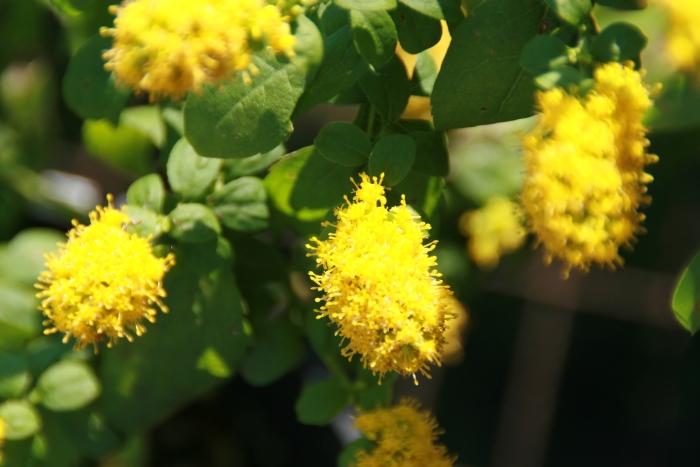Autumn Goldenrod
(Solidago sphacelata)
Autumn Goldenrod (Solidago sphacelata)
/
/

Photo by David J. Stang
CC BY-SA 4.0
Image By:
Photo by David J. Stang
Recorded By:
Copyright:
CC BY-SA 4.0
Copyright Notice:
Photo by: Photo by David J. Stang | License Type: CC BY-SA 4.0 | License URL: https://creativecommons.org/licenses/by-sa/4.0 | Uploader: David Stang | Publisher: Wikimedia Commons | Title: Solidago_sphacelata_Golden_Fleece_9zz.jpg | Notes: User created page with UploadWizard |








































Estimated Native Range
Summary
Solidago sphacelata, commonly known as Autumn Goldenrod, is a perennial herb that is deciduous or semi-deciduous, depending on the climate. It is native to open woodlands, forest edges, and meadows in the Eastern United States. This species typically grows up to 120 cm (4 feet) tall and features an underground caudex and rhizomes, which allow it to spread and form colonies. One plant can produce up to 250 small yellow flower heads that are grouped in a large, branching array at the top, blooming from late summer to fall. The flowers are quite showy, with their bright yellow color that primarily attracts butterflies and other pollinators.
Autumn Goldenrod is valued for its drought tolerance and the late-season color it provides in gardens. It is commonly used in naturalistic plantings, meadow gardens, and as a border plant. It thrives in full sun but can tolerate partial shade and prefers soils with medium drainage. While it is low maintenance, it can be aggressive in garden settings, spreading through its rhizomes. To control its spread, gardeners may need to divide plants or limit them with barriers. It has no major disease problems but can occasionally suffer from rust or mildew in humid conditions.CC BY-SA 4.0
Autumn Goldenrod is valued for its drought tolerance and the late-season color it provides in gardens. It is commonly used in naturalistic plantings, meadow gardens, and as a border plant. It thrives in full sun but can tolerate partial shade and prefers soils with medium drainage. While it is low maintenance, it can be aggressive in garden settings, spreading through its rhizomes. To control its spread, gardeners may need to divide plants or limit them with barriers. It has no major disease problems but can occasionally suffer from rust or mildew in humid conditions.CC BY-SA 4.0
Plant Description
- Plant Type: Herb
- Height: 1-1.5 feet
- Width: 1-1.5 feet
- Growth Rate: Moderate
- Flower Color: Yellow
- Flowering Season: Summer, Fall
- Leaf Retention: Deciduous
Growth Requirements
- Sun: Full Sun
- Water: Medium
- Drainage: Medium
Common Uses
Bank Stabilization, Bee Garden, Bird Garden, Border Plant, Butterfly Garden, Deer Resistant, Drought Tolerant, Erosion Control, Hummingbird Garden, Low Maintenance, Rabbit Resistant, Rock Garden, Showy Flowers, Street Planting
Natural Habitat
Native to open woodlands, forest edges, and meadows in the Eastern United States
Other Names
Common Names: False Goldenrod
Scientific Names: , Solidago sphacelata, Brachychaeta cordata, Solidago cordata, Brachychaeta sphacelata, Brachyris ovatifolia,
GBIF Accepted Name: Solidago sphacelata Raf.